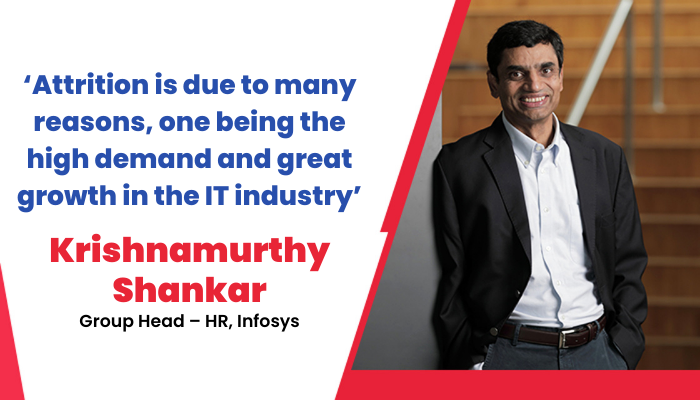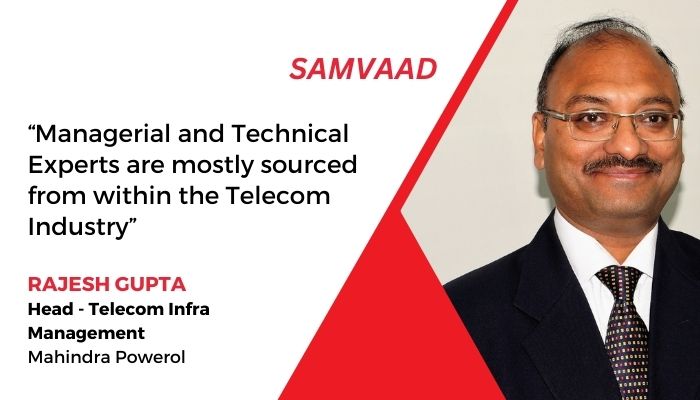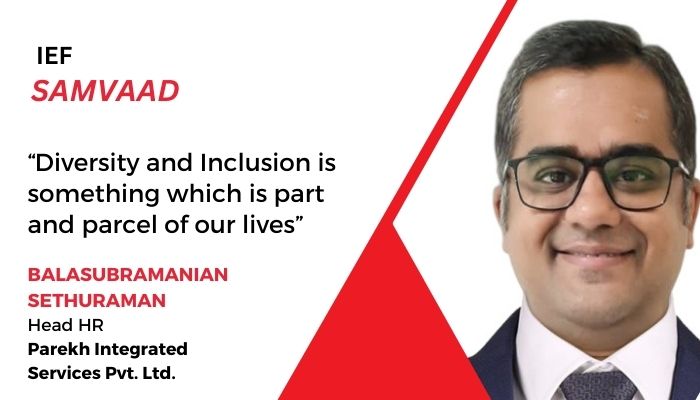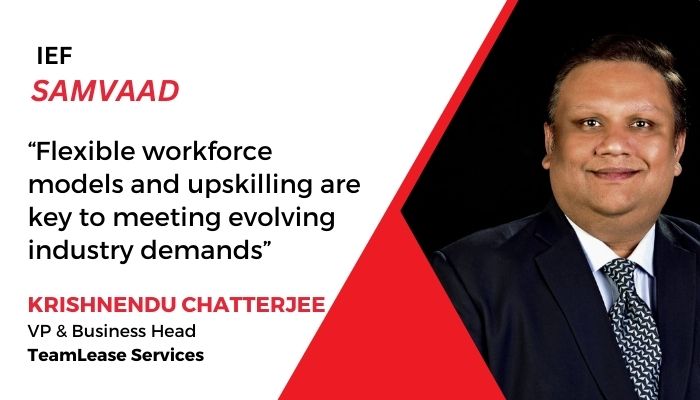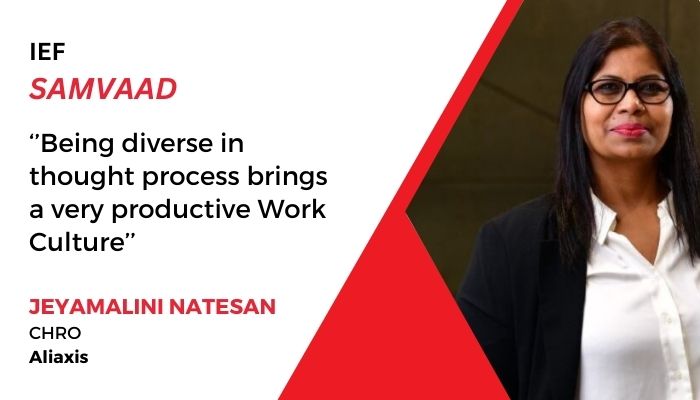Krishnamurthy Shankar, Group Head – HR, Infosys, talks to India Employer Forum on the change in employer-employee relationship with regard to mental health, attrition, and return to office.
Q. Tell us a little about yourself.
I am Krishnamurthy Shankar, and I am the Group Head – Human Resource Development at Infosys. In my 38 years of experience, I have led HR functions in organizations across varied industries. In my free time, I like watching football, trekking and running. I also love to write and used my time in the lockdown to write a book, ‘Catalyse – Power Up your People Ecosystem’, with just putting together all my experiences over the last 38 years in these different industries in a very practical kind of playbook. It reflects my perspective and learnings over time that I wanted to share with others.
Q. We have seen a massive increase in attrition in the past year, especially in the IT sector. As one of the largest employers in the country, how do you tackle this issue?
There is attrition, and we need to address it. Because of extensive funding, high attrition is due to the high demand and great growth in the IT industry and IT services in the Indian startup ecosystem. They have invested in technology and are hiring a lot, with the large multinationals setting up their own IT centers and back offices. There is a push toward digitisation due to the pandemic, which has led to a great demand for IT talent. A supply shortage also follows this because companies were slow in hiring in the year before the pandemic. I believe managing this is looking at your employee value proposition and what you want to stand for.
There is also a lot of focus on growth promotions, reskilling and internal mobility. These are some of the other things that we’ve been doing in the last few years, and it has been challenging because it’s all virtual. That has also added to some of our on-site opportunities that couldn’t happen because of travel restrictions to the USA and Australia, and other countries, which are now picking up. It’s about managing this attrition, looking at our value proposition, having more significant conversations with people on their career aspirations and working on internal mobility, promotions, reskilling people and compensating them for their skills.
Q. Long term stress and long hours of sitting at a desk in front of a computer have many health risks. How should companies avoid employee burnout and keep them motivated and engaged?
While there is great flexibility in time and place, the pandemic has led to longer work hours and eventual stress. Some people have used it to their advantage, and others have succumbed to its pressure. There is a need for many social connections, which means managers and their teams have to connect more individually. Also, people need breaks during work. We have encouraged our team members to plan their day well and not schedule calls and meetings after 6. Although there is a lot of interdependency within teams, setting up a routine and drawing boundaries is what we recommended—having a cadence of meetings, avoiding too many late evening calls and giving employees various opportunities to do a bit of self-care. We also address anxiety and stress in our employees through multiple mediums. Last year, we also started something called Women’s Samaritans. We already had Samaritans, where we had a group of employees trained to be first-level counselors. They were also trained to spot any issues or mental health concerns and counseling in the first instance.
We found more women going through long hours of stress, and therefore, we created a team called Women Samaritans to reach out and coach people to talk to them. Communication about well-being and various tools people can use to assess themselves and see where they are is essential. Call for meetings only when necessary, allowing flexibility, and the manager and the team talking a lot more personally are things that help manage this.
Q. The last two years have completely changed the employer-employee relationship. As we are preparing to enter a new era of work, what changes do you see sticking in the long run and how is your organization preparing for these changes?
I wouldn’t say there is a complete change in the employer-employee relationship. What has changed is that people have been working remotely and virtually, but the teams have felt a strong connection, even if less connected to the larger organization. Companies have done various things virtually; for example, in Infosys, we have Petit Infoscions, where children of Infosys employees come and perform various things like dance, art and music. One significant change is remote working or flexible working, something we never had two years back. While some people want to come back to the office today, some say they need more time since they may have gone to their hometowns during the lockdown.
I think employees are missing the buzz and the thing of being on campus in busy cities, so I think they will all come back soon. Some are waiting for the whole ecosystem to open, the daycare centers, the schools and the other facilities that were not fully open until last year. So, there wasn’t a complete change in the employer-employee relationship, but there has been a change in this flexible remote virtual working, which comes with its challenges.
Q. Recent news suggests that employees are not ready to return to the office. What is your view on this, and what steps will you take to tackle this while getting your employees back to the office?
I wouldn’t call it resistance, but they’ve got to start getting people back because there have been some issues, and it’s the question of managing this whole transition. So, what we have done is, as a company, we have asked employees in the cities to start with any two days in the office. The idea is to get the teams talking and connecting physically once or twice a week to sort out any problems. We have to be conscious of the need for flexibility and be aware that some profiles can be handled remotely.
So, in the end, this will be more of a hybrid kind of work, where there will be some group of people who will work from the office fully, while there will be others who will probably come 2-3 times a week. Depending on the profile, we probably will have a mix of all. I think it’s a mix of what the team likes, what the client wants, what the job does, and the flexibility needs of the individuals, so we’ll have to put all of this together. I think it’ll evolve, and slowly, people will do what is best for them, their careers, and their personal needs.
Watch the full interview: In Conversation with Krishnamurthy Shankar, Group Head – HR, Infosys
About Krishnamurthy Shankar
Krishnamurthy Shankar is the Group Head of Human Resource Development at Infosys. In this role, he is responsible for envisioning employee experience and driving the talent and organization strategy. Shankar has over 30 years of experience and has led HR functions in organizations like Bharti Airtel, Philips, Hindustan Unilever and Unilever. In his wide ranging experience in these organizations, he has facilitated transformation and capability development. Shankar holds a postgraduate diploma in HR from XLRI, Jamshedpur, India and has received an executive certificate in Strategy and Organization from the Stanford Graduate School of Business, and a doctorate in Business Administration from Aston University. Shankar is the author of ‘Catalyse – Power Up your People Ecosystem’, a much acclaimed play book for HR, blogs occasionally on LinkedIn , and is passionate about exploring new ideas in HR and organizational development and sharing them. A football enthusiast, he also likes trekking and running.

